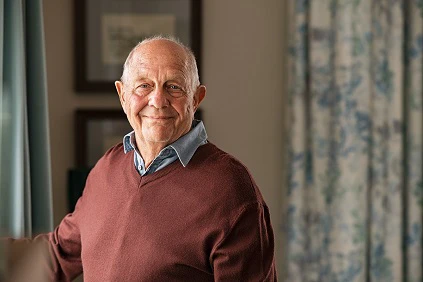What happens to my pension if I get divorced?
Getting a divorce can be a trying and confusing moment in one's life, during which there are many questions to be answered. Your pension might not be at the top of your list of priorities but it could be one of your most valuable assets.

The decisions you make about your pension during a divorce can have a direct impact on how much income you’ll receive when you retire, so it’s useful to understand your options.
Court orders
When you get divorced, your pension forms part of the matrimonial asset ‘pot’ that’s considered when deciding what should be shared between you and your former spouse, and how it should be shared.
If you both agree on how your assets should be shared, you can get a ‘consent order’ with the help of a solicitor and ask the court to approve it. If you can’t agree on how to share the assets, you can apply for a ‘financial order’, and a court will decide for you.
It’s important to note that both types of court order can help to protect you against claims on your pension that your ex-partner might make in the future.
Ways your pension can be shared during a divorce
There are three ways a pension can be shared as part of a financial agreement.
-
Pension offsetting
Pension offsetting is when the value of your pension is offset against other marital assets. For example, one of you might end up keeping the entire pension, while the other receives assets of equal value, like property, cash, or investments.
-
Pension sharing
Pension sharing is when your pension is divided into two separate pots – one for you and one for your ex-spouse. Usually, your ex-spouse’s pot will be transferred out to another pension scheme. This option leaves you both with your own individual pots when the divorce is finalised.
-
Pension earmarking (aka pension attachment order)
Pension earmarking is when pension benefits are split with your former spouse once your pension starts being paid. In this case, you keep control of your pension a proportion of your pension benefits are directed to your ex-spouse.
Help and support
If you’re getting divorced, you should seek professional advice to help you understand your options. A solicitor specialising in family law will be able to help you decide what your next steps should be. You might also benefit from financial guidance or financial advice to understand your options.
Related news & insights
-

What is Salary Sacrifice?
Salary Sacrifice is an alternative way of being paid by your employer, that could enable you to take home more money each month. But how exactly does this work? -

How much State Pension am I entitled to?
What does the State Pension mean to you? Not everyone is entitled to the same amount, so read on to find out how much might you get, and when you can expect to receive it. -

How a Lasting Power of Attorney works
There is a legal safeguard, known as Lasting Power of Attorney, or LPA, that you can put in place to help if you are no longer able to look after yourself, or make your own decisions. Here, we take a closer look at how LPAs work and how you can set one up. -

AVCs Explained
Did you know that it’s possible to top up your pension savings beyond what you usually contribute each month? We look at AVCs and explain how they can help you boost your pension savings.